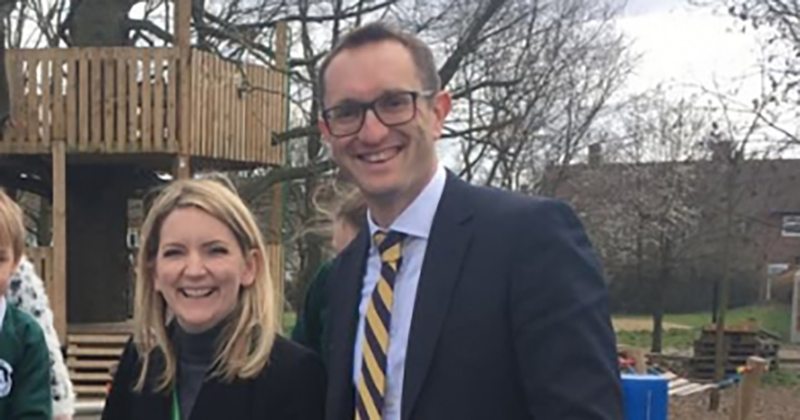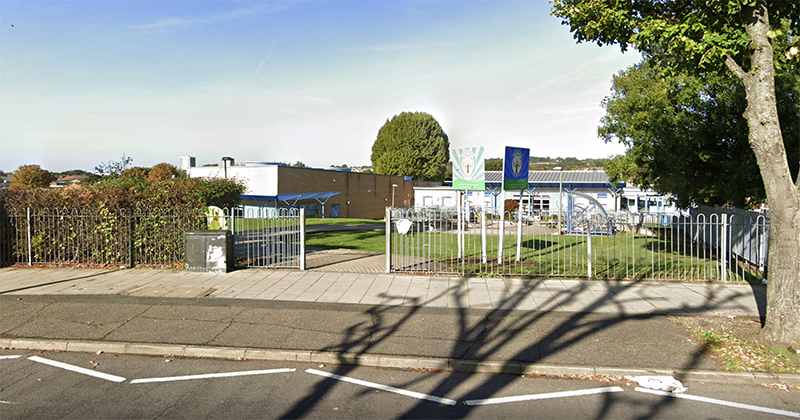A headteacher found guilty of misconduct over cheating in SATs tests is allowed to teach again after the Teaching Regulation Agency overturned its own decision to ban him.
Malcolm Drakes, former executive headteacher of Mead Primary School and Broadford Primary School in Romford, east London, was struck off in November 2022 following a misconduct hearing.
But the TRA was forced to convene a second hearing after the High Court ruled the misconduct panel had “wrongly stated” there was “no material before them” regarding how Drakes would act differently in the future.
In a decision published today, the TRA overturned its own decision – saying Drakes’ “exceptional contribution to teaching and education” meant the ban was not appropriate.
However the findings that his actions were “misconduct of a serious nature” were upheld.
Drakes “excessively” assisted pupils and “indicated” whether their answers were right during a spelling, punctuation and grammar test in May 2018.

This included over pronouncing words, such as stating ‘arc-i-tect’ for architect and ‘d-e-send-dant’ for descendant to help pupils spell, and stating that a pupil needed to leave space between words in an answer.
In the same month, he also “excessively assisted” pupils during a key stage 2 maths test. In both tests, he allowed other staff members to excessively assist pupils.
The exams were annulled by the Standards Testing Agency (STA) following a whistleblowing complaint from a staff member, including a video taken during one of the assessments.
Head worked for Harris after scandal
Drakes stepped down from the role in December 2018 by “mutual agreement”. In the intervening years before the first hearing, he worked as an associate principal at an “underperforming academy”, as well in a leadership consultant role at Harris Federation.
Drakes LinkedIn lists that he works for Harris’ leadership college which includes designing NPQ curriculums, running a vice-principal network and helping to write the trust’s successful bid to run the National Institute of Teaching.
But in November, Drakes accepted his actions were “dishonest and lacked integrity” and amounted to unacceptable professional conduct and conduct that may bring the profession into disrepute.

The panel’s recommendation of a prohibition order was then accepted by the secretary of state.
But Drakes appealed to the High Court, which ruled a different professional conduct panel should make a fresh decision on whether he should be banned.
A consent order, seen by Schools Week, shows the secretary of state had accepted there were “public interest considerations in favour of retaining the appellant within the profession”.
Leading trusts praise Drakes
At a fresh hearing in August, the panel upheld the allegations against Drakes but “was satisfied” that mitigating circumstances led to his “dishonesty”.
In evidence to the panel, the former headteacher said he had supported vulnerable pupils who “threatened” to leave the school site, which would pose a “significant safeguarding risk” on the day of the spelling test.
The panel was offered numerous references to his “exceptional contribution” to teaching from referees who were aware of the allegations against him.
These include from staff at Harris Federation, an employee at Academies Enterprise Trust who had been a moderator when Drakes oversaw SATs at two other schools in 2019, as well as former Broadford staff.
In its resulting judgment, the panel found Drakes to have “demonstrated significant remorse” having seen the impact of his actions on former pupils and staff.
It added that he “affirmed” his dedication to the profession in voluntarily supporting disadvantaged pupils with UCAS statements and mentoring school leaders while banned from teaching.
Career of ‘national recognition and acclaim’
The panel said Drakes, whose school had won the TES School of the Year award in 2017, had “developed a heightened sense of his own fallibility”.
At the time of the cheating, his “career had been one of interrupted success with national recognition and acclaim.
Drakes “admitted he had developed a persona that may have made it difficult for others to challenge him.
“He now has a very real sense that he is someone who could make a mistake, and that just because he has a certain belief, that does not mean he is always right, or that others should share that belief.”
There was also a “strong public interest consideration” in retaining him in the profession “since he is able to make a valuable contribution”.
David Oatley, acting on behalf of the secretary of state, agreed with its recommendation that a prohibition order was not appropriate.
Andrew Faux, who represented Drakes, said the case had been “torturously slow. It was enormously disappointing when he was prohibited last year and immediately clear that the committee’s approach was flawed”.
Banning Drakes “would have deprived the public of the services of this exceptional educator”, he added.
It’s the latest controversy involving the TRA, which was earlier this month heavily criticised for ruling a teacher with an “unblemished” record guilty of misconduct because a pupil misused a glue gun in an isolated incident.
Teachers accused of misconduct are now waiting more than two years on average for their cases to conclude after waiting times for staff facing hearings worsened for a third year running.
Such cases were taking on average 113 weeks – more than double the TRA’s 52-week target.
















Your thoughts